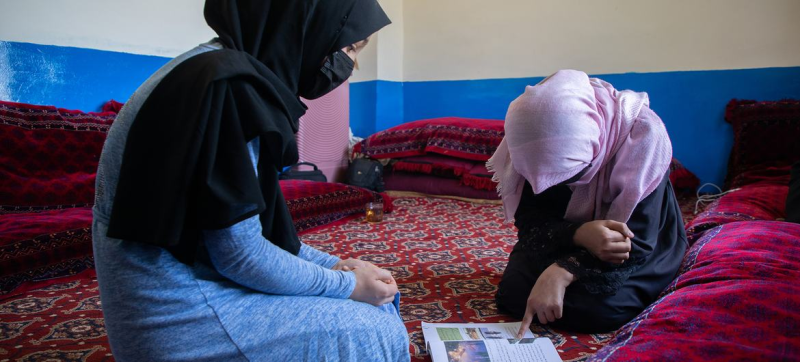- Puppet show enchants Children as Boi Mela comes alive on day 2 |
- DSCC Admin Salam’s drive to make South Dhaka a ‘clean city’ |
- 274 Taliban Dead, 55 Pakistan Troops Killed |
- Now 'open war' with Afghanistan after latest strikes |
- Dhaka's air quality fourth worst in world on Friday morning |
UN Women marks 15 years championing gender equality

Since returning to power, the Taliban have banned women and girls from secondary and higher education in Afghanistan.
Fariba, a young Afghan woman, had just begun her university degree in 2021 when the Taliban returned to power and banned women and girls from secondary and higher education.
This is just one example of how the de facto authorities have restricted the fundamental rights of women and girls. Today, Afghanistan has the second-largest gender gap in the world.
“Sometimes I wonder how to remain hopeful in these dark circumstances,” said Fariba, whose name was changed to protect her identity.
Afghanistan is not the only country where gender equality is losing ground. Worldwide, one in four countries is experiencing a backlash against women’s rights.
These are the challenges that UN Women confronts on its 15th anniversary, making its mandate and work more urgent than ever.
“This is not the moment to pull back. It is the moment to step forward,” said Sima Bahous, the agency’s Executive Director.
Established in July 2010, UN Women is currently working in 80 countries to empower women and girls to achieve their full potential.
Despite previous hard-won gains in girls’ education and legal advocacy, funding for gender equality is drying up and progress is slowing to a snail’s pace.
One in 10 women and girls lives in abject poverty, something the world will not eliminate for another 137 years at the current rate.
The number of women living near or in conflict zones has doubled in the past decade, putting them at greater risk of gender-based violence, food insecurity, and malnutrition.
Additionally, 103 countries have never had a female head of state, and gender parity in top government leadership will not be achieved for another 130 years.
While a digital revolution and increasingly powerful artificial intelligence are sweeping the world, the gender digital divide is widening, limiting women and girls’ access to future-critical tools.
However, despite such bleak circumstances — or perhaps because of them — UN Women continues to be a “powerhouse for gender equality and women’s empowerment.”
Over 600 million women and girls live within 50 kilometres of a conflict zone, making them key stakeholders in any peacebuilding process. More than that, evidence shows that peace processes with women signatories are more durable.
Despite this, between 2020 and 2023, 80 per cent of peace talks did not include women.
However, some countries are showing promising shifts toward greater gender inclusion in peace-related activities.
For example, in Ukraine, demining — historically closed to women due to perceived danger — is increasingly attracting female workers.
“What seems ‘not a woman’s job’ may turn out to be your mission,” said Tetiana Rubanka, the head of a demining team in Ukraine.
This is especially important in Ukraine, where the UN Mine Action Service (UNMAS) estimates that at least 20 per cent of land is contaminated with unexploded ordnance.
Despite clear evidence that quotas in government can promote gender parity, women remain excluded from many policymaking conversations.
To counter this, UN Women supports collective action by and for women, whose voices gain more strength when raised together.
In the Pacific, women make up the majority of market vendors, but the markets are run by municipal councils typically dominated by men. In the past, this meant women’s concerns — including poor ventilation, safety issues, and lack of refrigeration — went unheard.
Since 2014, a UN Women project has helped over 50,000 women vendors form associations to bargain collectively and achieve lasting improvements.
“We are not ordinary women who have nothing; we are women who are important. We just never thought of it that way in the past,” said Joy Janet Ramo, the head of a vendors’ association in the Solomon Islands.
In Afghanistan, over 80 edicts curtail women and girls’ fundamental rights: 80 ways their potential is being stifled, and 80 reasons to lose hope.
“The colours of the rainbow have dimmed in my life, and I no longer see any colours to paint,” said Anita, a woman who used to be an artist and a teacher.
Yet, these women refuse to give up. Many have formed grassroots organisations to promote women’s leadership and prepare for a time when their rights will be restored.
Currently, there is a $420 billion annual global financing gap for gender equality, making the work of UN Women increasingly difficult. Still, after 15 years, the agency says it is “doubling down” on its commitment.
“My fellow women: never lose hope in the ups and downs of life, in the lows and highs,” Anita said.

